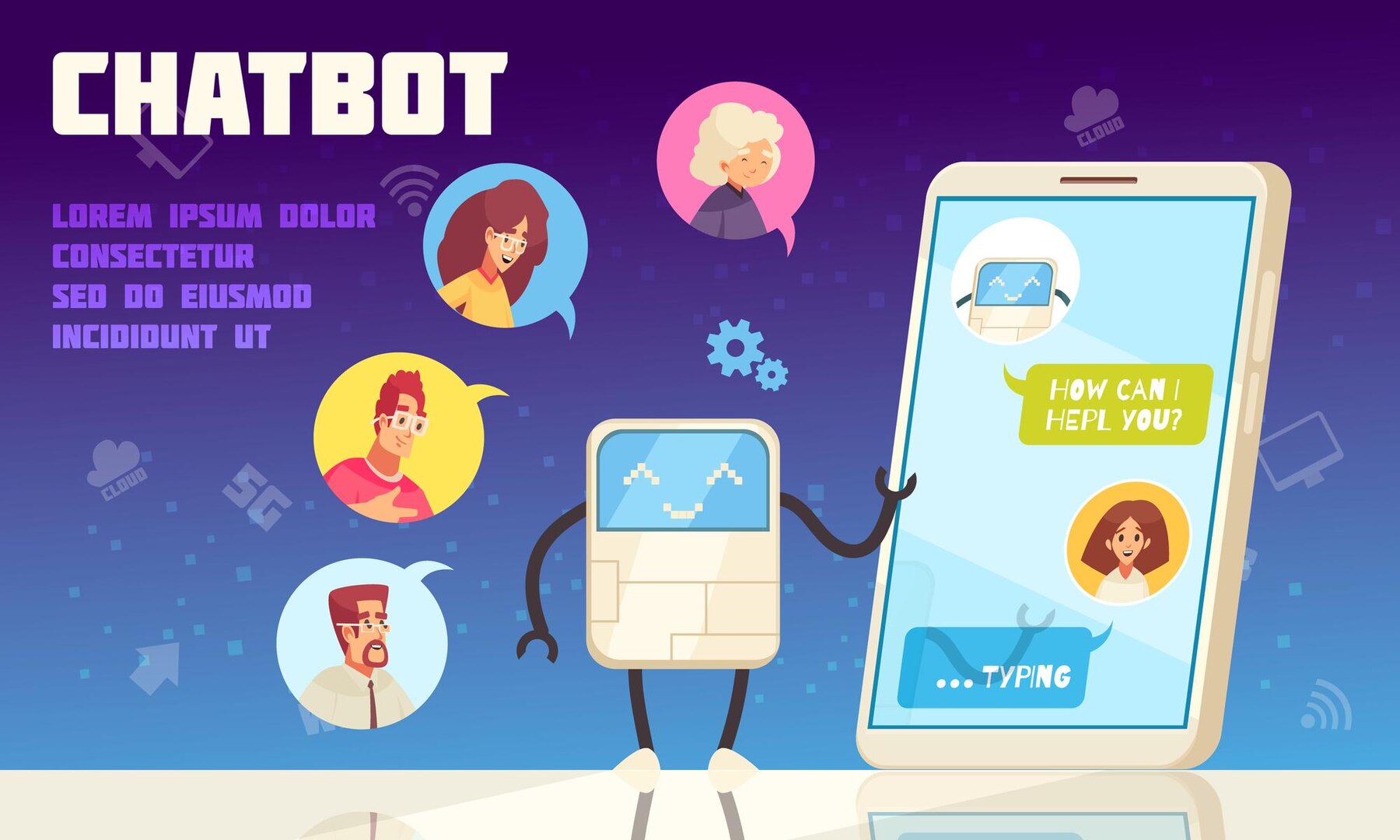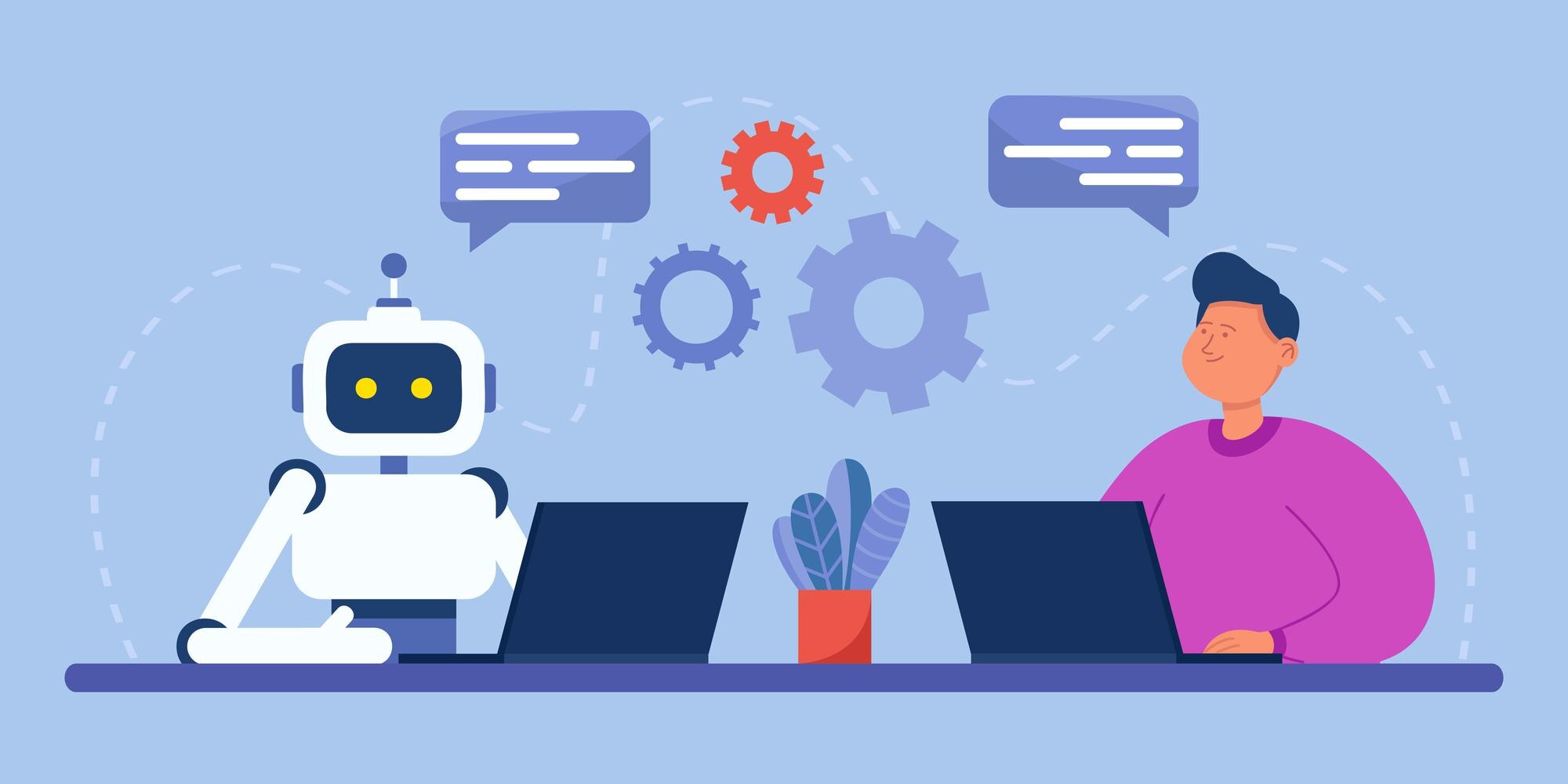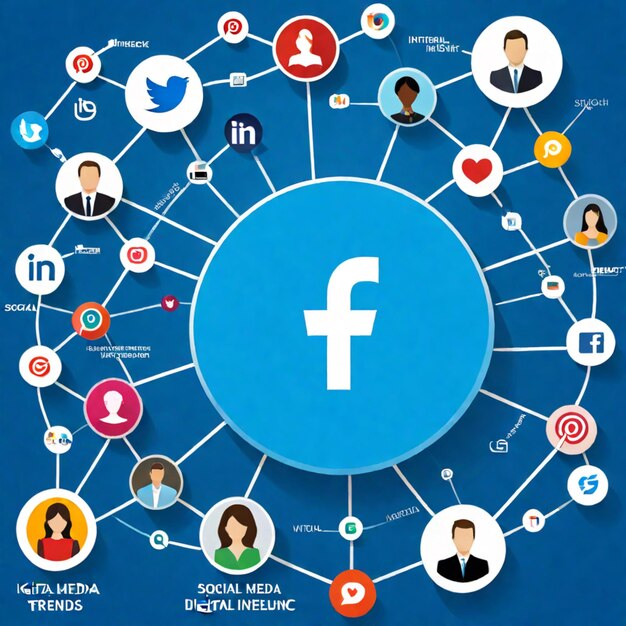In the fast-paced digital world, businesses are constantly seeking ways to enhance their customer service and marketing efforts. One of the most significant advancements in recent years is the use of chatbots. These AI-driven tools are revolutionizing the way companies interact with their customers. But what exactly are chatbots, and how are they impacting customer service and marketing? Let’s dive in and explore.
What Are Chatbots?

Chatbots are software applications designed to simulate human conversation. They can be rule-based, where they follow pre-set guidelines to respond to specific inputs, or AI-driven, using natural language processing (NLP) to understand and respond to user queries more naturally. By leveraging AI, chatbots can learn and improve over time, making them incredibly versatile and useful in various business applications. Read – The Future of Digital Advertising: Trends and Predictions
The Evolution of Chatbots
Chatbots have come a long way since their inception. The early days saw simple rule-based bots that could handle basic tasks like answering frequently asked questions. However, with advancements in AI and NLP, modern chatbots can engage in complex conversations, understand context, and provide more personalized responses. This evolution has significantly enhanced their effectiveness in customer service and marketing. Read – How to Create Engaging Content for Your Blog
Impact on Customer Service
Enhancing Customer Experience
One of the primary benefits of chatbots in customer service is their ability to enhance the customer experience. They provide instant responses to queries, reducing wait times and ensuring customers get the information they need quickly.
Reducing Response Times
In today’s world, customers expect fast responses. Chatbots can handle multiple queries simultaneously, ensuring that no customer is left waiting. This efficiency not only improves customer satisfaction but also frees up human agents to handle more complex issues.
24/7 Availability
Unlike human agents, chatbots can operate 24/7. This round-the-clock availability ensures that customers can get support whenever they need it, regardless of time zones.
Personalization in Customer Interactions
Modern chatbots use AI to personalize interactions based on the customer’s history and preferences. This level of personalization can make customers feel valued and understood, further enhancing their experience.
Impact on Marketing
Automating Marketing Campaigns
Chatbots are also making waves in the marketing realm. They can automate marketing campaigns by sending personalized messages to customers, nurturing leads, and even upselling products.
Personalized Marketing Strategies
With the ability to analyze vast amounts of data, chatbots can help businesses create highly personalized marketing strategies. They can segment audiences based on behavior, preferences, and demographics, ensuring that marketing efforts are targeted and effective.
Data Collection and Analysis
Chatbots are excellent tools for data collection. They can gather valuable insights from customer interactions, helping businesses understand their audience better and make data-driven decisions.
Enhancing Customer Engagement
By providing instant responses and personalized interactions, chatbots can significantly enhance customer engagement. Engaged customers are more likely to make purchases and remain loyal to the brand.
Benefits of Using Chatbots

Cost Efficiency
Implementing chatbots can be a cost-effective solution for businesses. They reduce the need for a large customer service team, as they can handle numerous queries simultaneously.
Scalability
Chatbots can easily scale to meet the demands of growing businesses. Whether it’s handling a surge in customer queries or managing multiple marketing campaigns, chatbots can adapt to the needs of the business.
Improved Customer Satisfaction
By providing quick, accurate, and personalized responses, chatbots can significantly improve customer satisfaction. Happy customers are more likely to return and recommend the business to others.
Challenges and Limitations
Technical Issues
Despite their advantages, chatbots are not without challenges. Technical issues can arise, such as difficulties in understanding complex queries or integrating with other systems.
Maintaining Human Touch
While chatbots are great for handling routine tasks, they may lack the empathy and understanding that human agents provide. Ensuring a balance between automation and human touch is crucial.
Privacy and Security Concerns
Handling sensitive customer data requires stringent security measures. Businesses must ensure that their chatbots are secure and comply with privacy regulations to protect customer information.
Case Studies
Successful Implementations
Many companies have successfully implemented chatbots to improve their customer service and marketing efforts. For instance, a leading e-commerce company used a chatbot to handle customer queries during peak shopping seasons, resulting in faster response times and higher customer satisfaction.
Lessons Learned
These case studies also offer valuable lessons. For example, continuous monitoring and updating of chatbot systems are essential to ensure they remain effective and relevant.
Future Trends in Chatbots
AI and Machine Learning Advances
The future of chatbots looks promising, with advancements in AI and machine learning set to make them even more intelligent and capable. Future chatbots will be able to handle more complex tasks and provide even more personalized interactions.
Integration with Other Technologies
Integration with other technologies, such as voice assistants and IoT devices, will further enhance the capabilities of chatbots. This integration will create more seamless and interactive customer experiences.
Conclusion
Chatbots are transforming the landscape of customer service and marketing. They offer numerous benefits, from enhancing customer experience to automating marketing efforts. While challenges exist, the continued evolution of AI and technology promises an exciting future for chatbots in business. As businesses strive to stay competitive, chatbots will undoubtedly play a crucial role in shaping their success.
FAQs
What industries benefit the most from chatbots?
Chatbots are particularly beneficial in industries with high customer interaction, such as e-commerce, banking, healthcare, and travel.
How do chatbots handle complex customer queries?
Advanced chatbots use AI and natural language processing to understand and respond to complex queries. They can also escalate issues to human agents when necessary.
Can chatbots replace human customer service agents?
While chatbots can handle many tasks, they are not a complete replacement for human agents. They work best when complementing human efforts, handling routine queries and freeing up agents for more complex issues.
What is the cost of implementing a chatbot?
The cost varies depending on the complexity and capabilities of the chatbot. Basic chatbots can be relatively inexpensive, while advanced AI-driven bots may require a more significant investment.
How secure are chatbots in handling customer data?
Security measures vary, but reputable chatbot providers implement stringent security protocols to protect customer data. Businesses must ensure their chatbots comply with privacy regulations.

